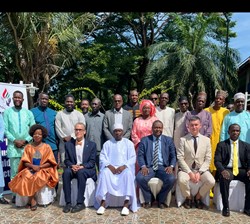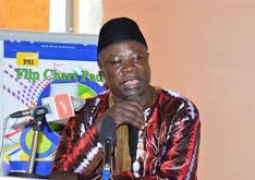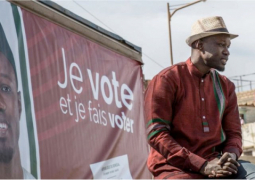
In his opening remarks, NHRC Chairperson Emmanuel D. Joof underscored that the Commission had been engaging local governments across regions including Kuntaur, Janjanbureh, Basse, Mansakonko, and Kerewan to promote rights-based budgeting at the grassroots level.
“When budgets are developed with a human rights lens, they become powerful tools for social justice and inclusion, ensuring that no one is left behind,” he said. “This engagement extends that critical conversation to our National Assembly, which holds the constitutional power to approve and oversee public expenditure.”
Mr Joof emphasised that the training conducted in partnership with the Office of the UN High Commissioner for Human Rights (OHCHR) seeks to build NHRC’s capacity to monitor economic and social rights through budget analysis, support the Ministry of Finance in human rights integration, and equip lawmakers with the knowledge to assess the human rights implications of fiscal decisions.
Deputy Speaker of the National Assembly, Hon. Seedy S.K. Njie, commended the NHRC’s role in promoting accountability and fairness in The Gambia.
“Budgets are not neutral documents,” he said, quoting former UN Secretary-General Kofi Annan. “Every dalasi we approve determines whether a child goes to school, a patient receives adequate healthcare, and the vulnerable are protected. Our oversight responsibility is both immense and consequential.”
He added that adopting a rights-based approach to budgeting will strengthen Parliament’s oversight role, promote transparency, and ensure equitable resource allocation.
Hon. Njie reaffirmed the National Assembly’s commitment to work closely with the NHRC to embed human rights in governance, stressing that such collaboration is crucial for meeting national development priorities and international obligations under the Sustainable Development Goals (SDGs).
UN Resident Coordinator Karl Fredrick Paul highlighted that a human rights-based budget ensures public spending advances equality and inclusion.
“As The Gambia continues to strengthen its democratic institutions, it is vital that public resources are used to advance the human rights of all especially the most vulnerable,” he stated. “Budgeting guided by human rights principles is key to achieving the SDGs, particularly Goal 16, which calls for effective, accountable, and inclusive institutions.”
He assured of the UN’s continued support to Parliament and national institutions in building capacity for rights-based governance and commended lawmakers for their active participation in the training.





